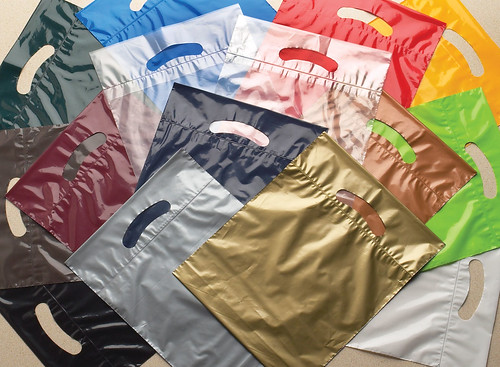塑膠袋是一種石油產品,也是陸地和海洋的一大垃圾來源。美國伊利諾州的研究人員發現,塑膠袋可以被逆轉成為柴油、天然氣、汽油,以及石腦油溶劑、蠟、發動機油和液壓油等其他實用的石油產品。
塑膠袋變超低硫柴油 符合國家標準
研究主要作者、伊利諾永續科技中心資深科學家Brajendra Kumar Sharma解釋,塑膠袋轉變的方法是在無氧室中燃燒塑膠袋,這個過程叫做「熱解」,轉變過程所產生的能量比消耗的能量多,可製造出柴油等交通燃料,和目前的超低硫柴油和生質柴油混用。
「原油蒸餾只能產生50%至55%的燃料,但是塑膠袋就是由石油製成,蒸餾後可回復高達80%的燃料。」
過去的研究曾用熱解反應將塑膠袋轉變成原油,但Sharma的團隊進一步將原油分餾成不同石油產品,並測試柴油的餾分是否符合國家的超低硫柴油和生質柴油標準。這項新研究發表在最新一期的《燃料處理科技》(Fuel Processing Technology)期刊。
研究團隊發現,將兩種餾分混和後產生的油品等同於美國2號柴油;另加入一種抗氧化劑後,就能符合今日所有其他柴油燃料的標準。「此柴油混和物所含能量和超低硫柴油相同,潤滑能力更佳。」Sharma說。
研究團隊將塑膠袋熱解實驗所得的柴油,以30%比例混入一般柴油,發現其「和生質柴油相容」,並「可以直接當超低硫柴油加,不需要任何額外的處理。」Sharma說。
塑膠袋危害海洋動物 美國1年丟1千億個
根據世界觀察研究所的統計,美國每年丟掉1千億個塑膠購物袋。美國環保署的報告則指出,塑膠袋回收率僅13%,剩下的全進入掩埋場或野外,飄過陸地進入水域,變成海洋中最大宗的垃圾之一,威脅野生動物生存,污染範圍遍及北極和南極海岸。
「一段時間後,塑膠袋分解成小碎片,和浮游生物一起被水生動物攝食。」Sharma說。魚、鳥、海洋哺乳動物和其他生物腹中都有塑膠粒子出現。
完整的塑膠袋亦威脅野生動物生存,Sharma說,「像海龜就會把塑膠袋誤認為水母吃下肚。」其他動物則可能被塑膠袋給纏住。
Manufactured from petroleum, plastic shopping bags, a source of litter on land and at sea, can be converted back into diesel, natural gas and other useful petroleum products, Illinois researchers report.
The conversion produces more energy than it requires and results in transportation fuels such as diesel that can be blended with existing ultra-low-sulfur diesels and biodiesels.
Other products, such as natural gas, gasoline, the solvent naphtha, waxes, engine oil and hydraulic oil also can be derived from shopping bags.
The new study appears in the current issue of the journal “Fuel Processing Technology.”
There are other advantages to the approach, which involves heating the bags in an oxygen-free chamber, a process called pyrolysis, said Brajendra Kumar Sharma, a senior research scientist who led the research at the Illinois Sustainable Technology Center.
“You can get only 50 to 55 percent fuel from the distillation of petroleum crude oil,” Sharma said. “But since this plastic is made from petroleum in the first place, we can recover almost 80 percent fuel from it through distillation.”
Previous studies have used pyrolysis to convert plastic bags into crude oil, but Sharma’s team took the research further by fractionating the crude oil into different petroleum products and testing the diesel fractions to see if they complied with national standards for ultra-low-sulfur diesel and biodiesel fuels.
A mixture of two distillate fractions, providing an equivalent of U.S. diesel #2, met all of the specifications required of other diesel fuels in use today, after addition of an antioxidant, Sharma said.
“This diesel mixture had an equivalent energy content … and better lubricity than ultra-low-sulfur diesel,” he said.
The researchers were able to blend up to 30 percent of their plastic-derived diesel into regular diesel, and found “no compatibility problems with biodiesel,” Sharma said.
“We can just use it as a drop-in fuel in the ultra-low-sulfur diesel without the need for any changes, ” he said.
Americans throw away about 100 billion plastic shopping bags each year, according to the Worldwatch Institute. The U.S. Environmental Protection Agency reports that only about 13 percent of plastic bags used are recycled. The rest end up in landfills or escape to the wild, blowing across the landscape and entering waterways.
Plastic bags make their way into giant ocean garbage patches, killing wildlife and littering beaches as far north and south as the poles.
“Over a period of time, this material starts breaking into tiny pieces, and is ingested along with plankton by aquatic animals,” Sharma said. Fish, birds, ocean mammals and other creatures have been found with a lot of plastic particles in their guts.
Whole shopping bags also threaten wildlife, Sharma said. “Turtles, for example, think that the plastic grocery bags are jellyfish and they try to eat them,” he said. Other creatures become entangled in the bags.
The research paper, “Production, Characterization and Fuel Properties of Alternative Diesel Fuel From Pyrolysis of Waste Plastic Grocery Bags,” is available online or from the University of Illinois News Bureau.
※ 全文及圖片詳見:ENS








